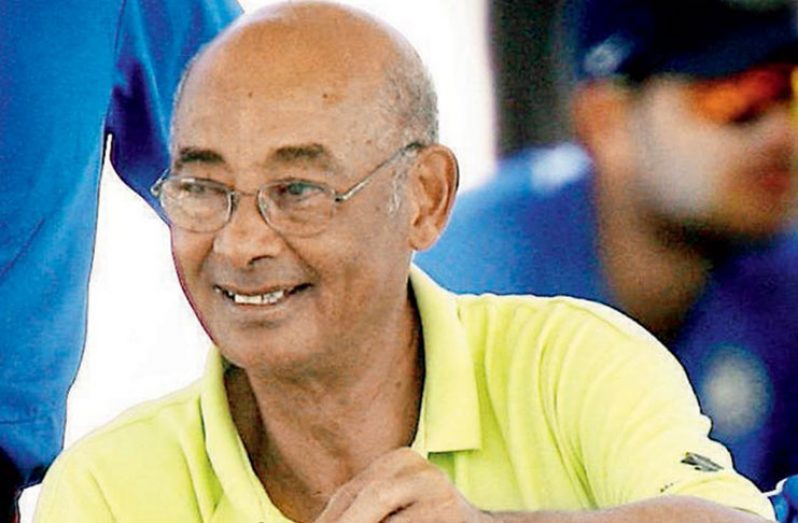By Dr.Rudi V. Webster
CONSCIOUS of the bitter divisions in France, President Macron at the end of the G20 Summit in Hamburg said that polarisation is a serious threat to cooperation, mutual trust, mutual respect and world peace.
Like a malignant tumour, polarisation has spread worldwide and is causing problems and conflicts, not just between traditional foes and adversaries but also among longtime friends and allies. It has even crept into our everyday lives and it is now very difficult to disagree without being disagreeable or adversarial.
Better leadership and a more creative style of thinking are needed to deal with the challenges in today’s competitive and rapidly changing world in which just about everything is interconnected and interdependent.
Albert Einstein alluded to this many years ago when he said: “The world that we have made as a result of the level of thinking we have done thus far creates problems that we cannot solve at the same level as they were created.” If Einstein is right we must take our leadership and thinking to higher levels.
Visionary leadership might be the answer here in the Caribbean and in other parts of the world. Great leaders help their people to see beyond what the organisation or country is at the moment, to what it can achieve and become in the future. They also show them how they can contribute to that future and benefit from it.
They are dealers of hope. This type of leadership must not be confined to the people at the top of the organisation. It must spread to every rank and position.
Forty years ago, leadership was probably easier and certainly less complex than it is today. We need more and better leaders now than back then; broad people with vision, honesty, self-confidence, self-discipline and self-motivation. The level of the leader’s performance is strongly influenced by the depth of his discipline and motivation. Without these leaders, there is no way that we will continue to prosper. In some of our countries and businesses we might not even survive without them.
The leaders who will do best in these challenging circumstances will be the ones who achieve self-mastery; optimise group synergy, communication and the management of diversity and interdependence; promote continuous learning for the individual and the organisation; and establish sustainable development that includes accountability, respect for human rights and respect for the environment and climate change. Mastery of self is still the greatest mastery and good leadership starts with self-leadership. Unfortunately, too many of our leaders try to change their country or organisation without first changing themselves.
The successful leader faces the same circumstances as everyone else but he doesn’t just drift along and allow circumstances to chart his path. Instead, he chooses where he wants to go and finds a way to get there.
Errol Barrow, a former prime minister of Barbados was such a leader. He once said to me, “This vision thing is very important. You must have a powerful vision of where you want to take your country. That vision must be clear in your mind and you must simplify it and clarify it further before you speak about it or show it to the country.
Your people will then hopefully be able to see it and identify with it. If you get too far ahead of the people they might not see what you are trying to show them. No matter how good your vision, it will be worthless unless your people can see it, understand it and buy into it.”
Vision gives purpose and direction and is a future that beckons. Not only does the brain create the vision but it also subordinates its activities toward making it a reality. To forget one’s vision and purpose is a prescription for failure and is one of the commonest forms of stupidity. The organisation’s vision should be constantly articulated and monitored and should become an important part of its culture. Everyone should know it.
But if vision is so important why do some organisations pay so little attention to it? Why indeed are their visions so vague, out of focus and incoherent? Today’s leaders spend too much of their time problem-solving and too little in the pursuit of creative and visionary leadership.
Leaders who are obsessed with power and control and who rely solely on the power of their position to get things done usually fall short of their objectives because of an inherent power gap that is created by poor management of key relationships inside and outside the organisation. The only way to bridge that gap is to rectify that deficiency.
When the leader believes that team members can truly make a difference to the performance of the team and informs them about his expectations, members bring with them a level of passion and commitment that when correctly directed and focused satisfies a major requirement for success – the Pygmalion effect.
Years ago, Sri Lankan presidential candidate Gamini Dissanayake was assassinated by a suicide bomber at a political meeting, a fate that I miraculously escaped. A few days before he died he spoke to me about leadership and asked, “Who is thus a great leader?” He then answered his own question: “A great leader is not one who says, “I did this, I did that,” or “I did everything.”
He is one who behaves in such a way that when at a particular time his people are asked, “Who achieved these great things for you?” They will answer and say, “We did them together.”
This seems to be a good antidote for the greed, egotism, adversarial thinking and polarisation that are currently dominating our lives and our world.



.jpg)








